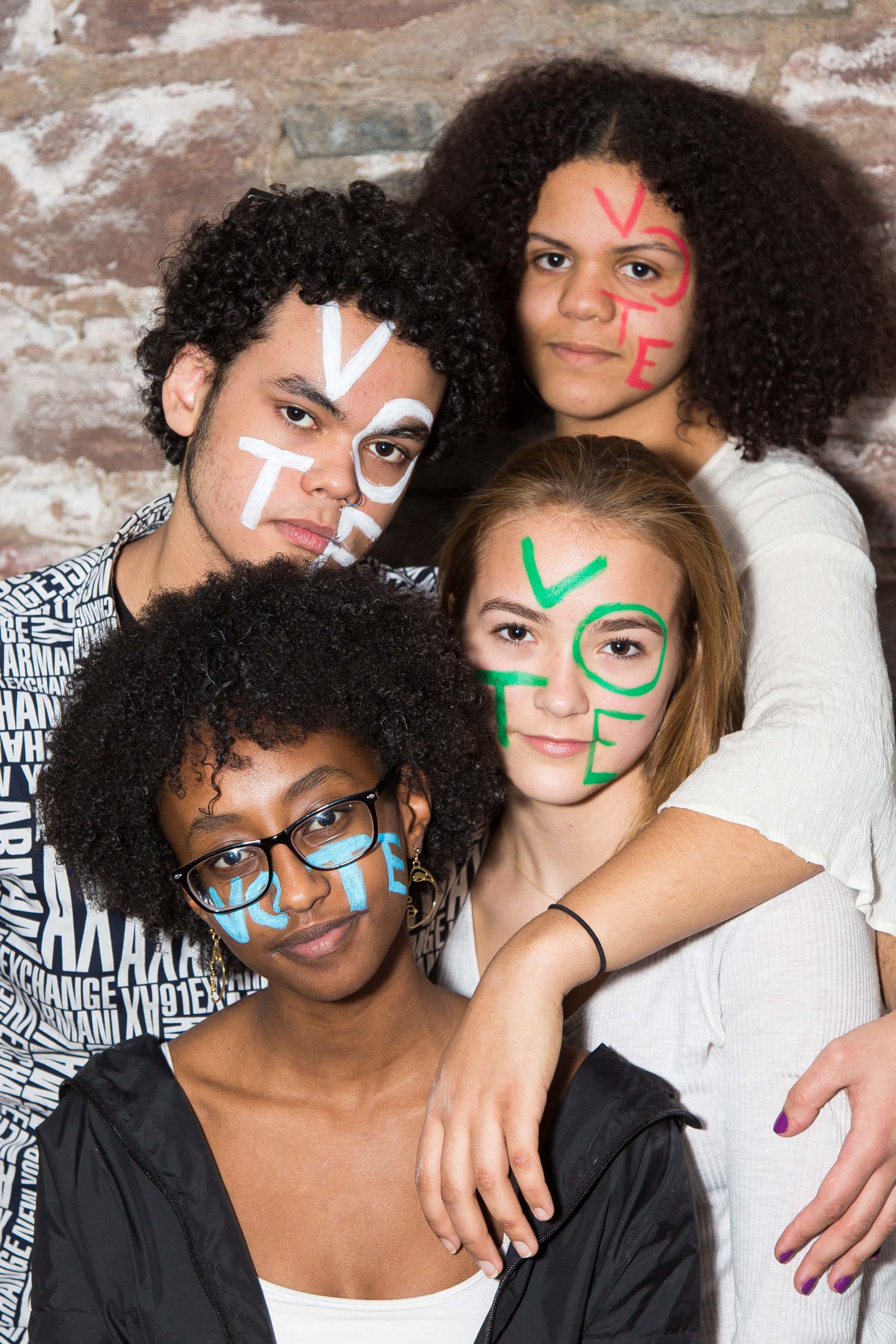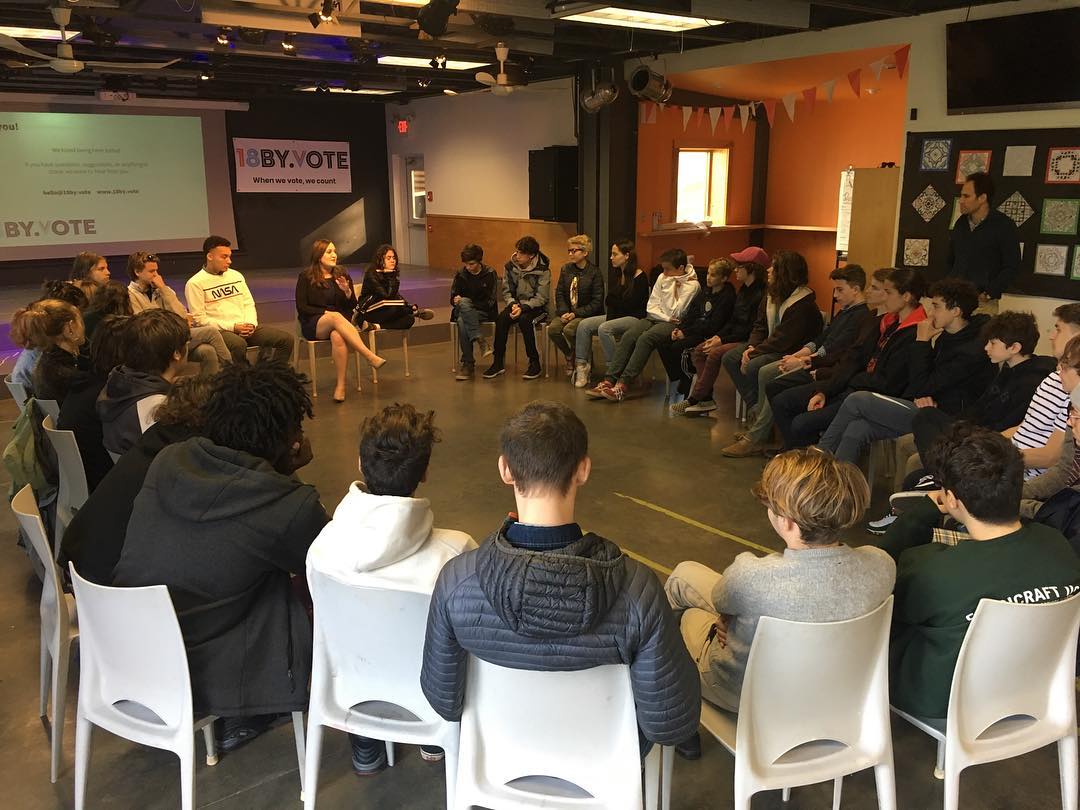First-time Voters Could Shape This Election
Jazmin Kay, Executive Director of 18by.vote breaks down the power of Gen-Z and how they need to get involved.

Saying a lot has changed since 2016 is an understatement. Among a global pandemic, economic uncertainty and skyrocketing unemployment, rallying calls for racial justice and systemic reform, extreme weather events, and much more, the past four years and 2020 alone have exposed, and in many cases worsened, the deep-set inequities our country continues to grapple with. As all of this has occurred, many young people across the country, who have been watching this unfold and impact their lives, were reaching voting age and becoming new eligible voters.
Since the last presidential election, more than 15 million young people have turned 18. For some perspective on how consequential this new bloc of voters is, in 2016, fewer than 80,000 votes in three states—Michigan, Pennsylvania, and Wisconsin—determined the outcome of the election for President Trump.
According to CIRCLE, voter registration overall among 18- to 24-year-olds is currently higher than it was in 2016. However, CIRCLE also found that voter registration among our youngest eligible voters (ages 18-19), a group that is frequently overlooked, is below where it was during the last presidential election. This demonstrates that there is still work to be done to ensure that we are connecting with all of Gen Z’s newest voters.
Gen Z is the largest, most diverse generation in history. Seven million young people of color will have turned 18 since the last election and just this year alone, 4 million Americans will turn 18.
Yet, young people consistently have lower rates of voter participation compared to older generations. 2020 is also the first year ever that the electorate will be mostly young people, with millennials and Gen Z comprising 51% of the population. This presents a tremendous opportunity for these younger generations to influence this election.
On the issues, Gen Z tends to be more liberal-leaning than past generations and are more critical of the current administration according to Pew Research Center. They also tend to be more progressive on social issues, such as LGBTQ+ equality and racial justice. Additionally, 80% of young people believe that climate change is a major threat to humanity and that the government should do more to enact climate policy.
“Ultimately, Gen Z is going to be left with whatever consequences or decisions that happen during this year and for years to come,” said Sydney Stewart, 18, a first-time voter from Goodlettsville, Tennessee and a Civic Engagement Fellow with 18by.vote, a youth-led, non-profit organization that aims to help 16, 17, and 18-year-olds understand how, when, and why to vote. “I think that’s why it’s so important to vote because policies and laws that are implemented have life-altering outcomes for generations. Issues important to me would be voting rights, reproductive rights, community investment in BIPOC communities, criminal justice reform, and immigration rights. Everything is important to me because the personal is political.”

As Stewart shared, young people don’t fail to vote because they don’t care. They care a lot about their communities and the issues that face their generation and those to follow. But our current electoral system tends to not center them in our outreach. A survey from earlier this year of registered voters under 35 by the Alliance for Youth Action, found that 80% of young voters reported being extremely likely to vote. Yet, that same report also found 67% of young Democratic voters had never been called by a campaign.
A lack of accessible voting information also poses an issue for first-time voters. Twenty-three percent of unregistered 18- and 19-year-olds stated that they did not vote in the last presidential election because they missed registration deadlines, with an additional 6% stating they did not vote because they did not know where or how to register to vote according to CIRCLE. And while many state’s voter registration deadlines have passed (check here to pre-register or register to vote or check your registration status), there is still significant work to be done to ensure young people who are registered to vote for the first time understand how to vote in a process now made even more convoluted due to the coronavirus.
With the pandemic and many campuses and schools closed, many traditional ways to reach new voters have had to dramatically shift. That’s why 18by.vote and Plus1Vote are partnering this election cycle to mobilize new, first-time voters to show up and bring a “plus one” with them to the polls. Utilizing relational organizing, we are working to meet young people where they are at through digital platforms. Additionally, as a part of this movement to empower first-time voters, Plus1Vote and Tok the Vote are launching a campaign on TikTok today, encouraging young people to share about voting and tag three plus1’s. At 18by.vote, we have been working with our Civic Engagement Fellows across the country from areas that tend to lack civic infrastructure, to build hyper-local, peer to peer campaigns around voting, reaching and equipping over 80,000 people with voting resources thus far this election.
As I have seen first hand, there is palpable energy right now from first-time voters. As Emily Guo, 19, a first-time voter from Johns Creek, Georgia and a 18by.vote Civic Engagement Fellow pointed out: “Considering voting turnout, especially among young people, has been at record highs during early voting, I believe that this election has invigorated first-time voters to support both candidates. In my state of Georgia, 337,652 people who didn’t vote in 2016 requested ballots as of September 24th, 67% of them being younger than 30 years old. It is clear that first-time voters are turning out in surges, so they will definitely be able to shape this election.”
If new, first-time voters participated at the same rate as other demographics, they could determine not just this election outcome, but every election to follow and shape many decisions on issues such as climate, racial justice, health care, college affordability, and more that directly impact young people’s lives.
Yet while the enthusiasm thus far has been encouraging, it is incumbent on all of us, regardless of our age, to ensure first-time voters are able to cast their first-ever ballots. Whether that is through helping the young people in your life understand how to vote by mail and offering to drop off their ballot with them, carpooling with your friends to the polls during early voting or on Election Day, or sharing with students at your high school or college about what is on their ballot this fall—we all have a role to play to ensure our democracy can live up to its intended purpose of reflective representation by ensuring first-time voters are heard loud and clear at the ballot box.
Want to help first-time voters show up to the polls and bring and Plus1 with them? Follow @18by.vote and @plus1vote on social media and head to the 18by.vote and Plus1Vote websites for voting resources and check out the V is for Vote page for more.
Discover More
